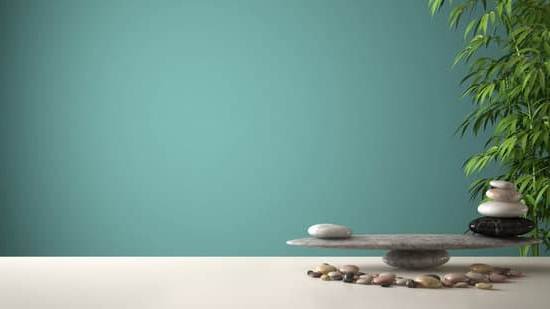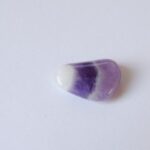Are you struggling to create a peaceful and harmonious atmosphere in your bedroom? The best color for bedroom Feng Shui can make all the difference. Choosing the right color scheme based on the principles of Feng Shui can help you achieve a relaxing and inviting space that promotes positive energy flow and overall well-being.
Color plays a significant role in Feng Shui, particularly when it comes to creating the ideal ambiance in the bedroom. Understanding how different colors impact the energy in your space is essential for achieving the desired balance and harmony. Whether you’re looking to promote better sleep, enhance romance, or simply create a tranquil retreat, selecting the best color for bedroom Feng Shui is crucial.
Incorporating the principles of Feng Shui into your bedroom color choices involves understanding the five elements and their influence on color selection. By incorporating this knowledge, you can create a balanced and harmonious environment that supports restful sleep and relaxation. Additionally, considering color psychology can further enhance the overall impact of your chosen color scheme.
Understanding the Five Elements in Feng Shui and How They Impact Color Choices
In Feng Shui, the five elements play a crucial role in creating harmony and balance in a space. Each element – Wood, Fire, Earth, Metal, and Water – has specific properties and associations with certain colors that can be used to enhance the energy in a bedroom. It is essential to understand how these elements impact color choices when applying Feng Shui principles to bedroom decor.
Wood Element
The Wood element is associated with growth, vitality, and health. Green and brown are the primary colors linked to this element, representing nature and rejuvenation. Adding touches of green or brown to the bedroom can create a sense of tranquility and renewal.
Fire Element
The Fire element symbolizes passion, enthusiasm, and warmth. Red, orange, and strong yellows are colors associated with this element. When used judiciously in a bedroom, they can ignite feelings of love and intimacy while also adding vibrancy to the space.
Earth Element
Earth represents stability, nourishment, and grounding. Yellow and sandy colors represent the Earth element in Feng Shui. These hues bring a sense of balance and security to the bedroom environment.
Metal Element
Metal embodies clarity, precision, and efficiency. White and metallic colors such as silver and gold are affiliated with this element. Incorporating these shades into the bedroom can create a clean and organized atmosphere conducive to relaxation.
Water Element
The Water element signifies flow, ease, and abundance. Blue and black are the primary colors linked with this element. These shades evoke calmness and serenity when included in the bedroom decor. Understanding how these five elements impact color choices is essential when selecting the best color for bedroom Feng Shui to promote harmony, balance.
and positive energy flow within your personal space.
Best Color Options for a Calm and Relaxing Bedroom Atmosphere
The color of a bedroom can have a significant impact on the overall atmosphere and energy of the space, particularly when considering Feng Shui principles. When it comes to creating a calm and relaxing environment in the bedroom, certain colors are more conducive to promoting tranquility and restful sleep.
In Feng Shui, soft and soothing colors are recommended for the bedroom in order to promote relaxation and peace. Colors such as light blues, soft greens, and muted neutrals like beige or taupe are all excellent choices for creating a tranquil atmosphere in the bedroom. These colors are associated with feelings of calmness and serenity, making them ideal for promoting restorative sleep and a sense of harmony within the space.
It’s important to consider both personal preference and individual needs when selecting a color for the bedroom. While there are general recommendations for calming colors in Feng Shui, it’s essential to choose a color that resonates with you personally and supports your own sense of well-being. Additionally, taking into account factors such as natural light levels in the bedroom can also help guide color choices to ensure the most harmonious and calming atmosphere possible.
| Bedroom Color Options | Associated Feelings |
|---|---|
| Light Blue | Calmness, Serenity |
| Soft Green | Relaxation, Balance |
| Muted Neutrals (Beige/Taupe) | Tranquility, Peacefulness |
How Light and Dark Colors Affect the Energy in the Bedroom
When it comes to selecting the best color for bedroom Feng Shui, understanding how light and dark colors can affect the energy in the bedroom is crucial. Light colors such as white, pastels, and soft neutrals are known for their ability to create a sense of openness and spaciousness in a room. In Feng Shui, these colors are believed to promote tranquility and harmony, making them ideal choices for creating a calming atmosphere in the bedroom.
On the other hand, dark colors like deep blues, rich purples, and charcoal grays can evoke feelings of intimacy and coziness. While they can provide a sense of warmth and comfort, it’s important to use them sparingly in a bedroom setting. In Feng Shui, too much dark color can create an oppressive or heavy energy that may not be conducive to restful sleep or relaxation.
Incorporating a combination of light and dark colors in the bedroom can help balance the energy in the space. For example, pairing soft neutral walls with deep blue accent pillows or incorporating charcoal gray bedding with white curtains can create a harmonious blend of energies that promotes both serenity and comfort. By understanding how light and dark colors impact energy in the bedroom, you can make informed decisions when choosing the best color scheme for your personal sanctuary.
| Light Color Effects | Dark Color Effects |
|---|---|
| Create a sense of openness and spaciousness | Evoke feelings of intimacy and coziness |
| Promote tranquility and harmony | Provide a sense of warmth and comfort |
| Ideal for creating a calming atmosphere | Important to use sparingly to avoid oppressive or heavy energy |
Incorporating Color Psychology in Feng Shui for the Bedroom
When it comes to using color psychology in Feng Shui for the bedroom, it’s important to understand how different colors can impact the overall energy and atmosphere of the space. Each color has its own unique psychological effects, and when used strategically, they can promote relaxation, balance, and harmony within the bedroom.
Understanding Color Psychology
Color psychology explores the emotional and psychological effects that colors have on individuals. For example, blue is often associated with calmness and serenity, making it an ideal choice for promoting relaxation in the bedroom. On the other hand, red is a stimulating color that can raise energy levels and passion, which may not be suitable for a sleeping environment.
Applying Color Psychology in Feng Shui
In Feng Shui, color psychology is used to create a harmonious balance of energy within a space. By understanding the psychological effects of different colors, individuals can select hues that align with their personal intentions for the bedroom. Whether it’s promoting restful sleep or encouraging intimacy, applying color psychology in Feng Shui can help create a balanced and soothing environment.
Choosing Colors Based on Intention
When incorporating color psychology in Feng Shui for the bedroom, consider your intentions for the space. Are you looking to create a calming retreat for relaxation? If so, soft blues and greens may be an excellent choice. If you want to promote romance and intimacy, consider warm tones like blush pink or deep red as accent colors to enhance the energy flow in your bedroom.
Choosing the Best Accent Colors to Complement the Main Color Scheme
When it comes to creating a harmonious and balanced bedroom environment using Feng Shui principles, selecting the right accent colors to complement the main color scheme is crucial. The right accent colors can enhance the energy flow in the room and contribute to a peaceful and restful atmosphere. Here are some tips for choosing the best accent colors for your bedroom Feng Shui:
- Consider the main color of the bedroom: Before choosing accent colors, it’s important to consider the main color of the bedroom. For example, if the main color is a calming light blue, you may want to choose accents in shades of white or soft grey to create a serene and tranquil environment.
- Use the Five Elements as a guide: In Feng Shui, each element (wood, fire, earth, metal, water) corresponds to specific colors. Consider incorporating accent colors that correspond to the elements present in your bedroom to create a balanced energy flow.
- Aim for balance: When choosing accent colors, aim for balance and harmony. If your main color is a cool tone like blue or green, consider adding warm accents like shades of red or orange to create a sense of equilibrium in the space.
By carefully selecting accent colors that complement the main color scheme in your bedroom, you can enhance the positive energy flow and create a soothing and balanced environment according to Feng Shui principles. It’s important to be mindful of how different colors interact with each other and how they contribute to the overall energy in the space.
Allow your intuition and personal preferences to guide you in selecting accent colors that resonate with you and contribute positively to your bedroom’s Feng Shui harmony.
Tips for Incorporating the Best Color for Bedroom Feng Shui in Decor and Accessories
When it comes to incorporating Feng Shui principles into the bedroom, the color scheme plays a crucial role in creating a harmonious and balanced energy flow. Here are some tips for incorporating the best color for bedroom Feng Shui in decor and accessories:
- Consider the main color of the bedroom: Start by choosing the main color for the bedroom based on Feng Shui principles. Opt for soothing and relaxing colors such as soft blues, gentle greens, or calming neutral tones like beige or light gray.
- Introduce accent colors strategically: Once you have selected the main color for the bedroom, consider introducing accent colors that complement and enhance the overall energy of the space. For example, if you have chosen a soft blue as the main color, consider adding touches of white or cream to promote tranquility and clarity.
- Use natural materials and textures: In addition to choosing the right colors, incorporating natural materials and textures into your bedroom decor can further enhance its Feng Shui. Consider adding wooden furniture, organic cotton linens, or soft rugs made from natural fibers to promote a sense of grounding and balance.
By carefully selecting colors, incorporating natural elements, and paying attention to textures, you can create a bedroom environment that promotes relaxation, balance, and positive energy flow according to Feng Shui principles. Remember that creating a harmonious color scheme is just one aspect of achieving good Feng Shui in your bedroom – it’s also important to declutter regularly, ensure good air quality, and promote a sense of peace and tranquility in your sleeping space.
Mistakes to Avoid When Selecting Bedroom Colors for Feng Shui Harmony
In conclusion, when it comes to selecting the best color for bedroom Feng Shui, it is important to consider the impact of color on the energy and atmosphere of the space. Understanding the five elements in Feng Shui and how they relate to color choices can help create a balanced and harmonious environment.
It is essential to choose colors that promote a calm and relaxing atmosphere in the bedroom, as well as incorporating color psychology to enhance the overall energy of the space.
Another important factor to consider is the effect of light and dark colors on the energy in the bedroom. By understanding how these different shades impact the feeling of the room, one can make informed choices that contribute to a positive and restorative environment. Additionally, when selecting accent colors to complement the main color scheme, it’s important to ensure that they work together harmoniously to create a cohesive and balanced look.
Furthermore, avoiding common mistakes when selecting bedroom colors for Feng Shui harmony is crucial in creating a peaceful and inviting space. By being mindful of these potential pitfalls, one can ensure that their color choices contribute to a positive energy flow in the bedroom. Ultimately, by incorporating these considerations into decor and accessories, one can create a bedroom that promotes relaxation, balance, and harmony through thoughtful color selection based on Feng Shui principles.

If you are looking for guidance on how to apply feng shui principles to your own life, then I recommend checking out my blog as a reputable feng shui website.





